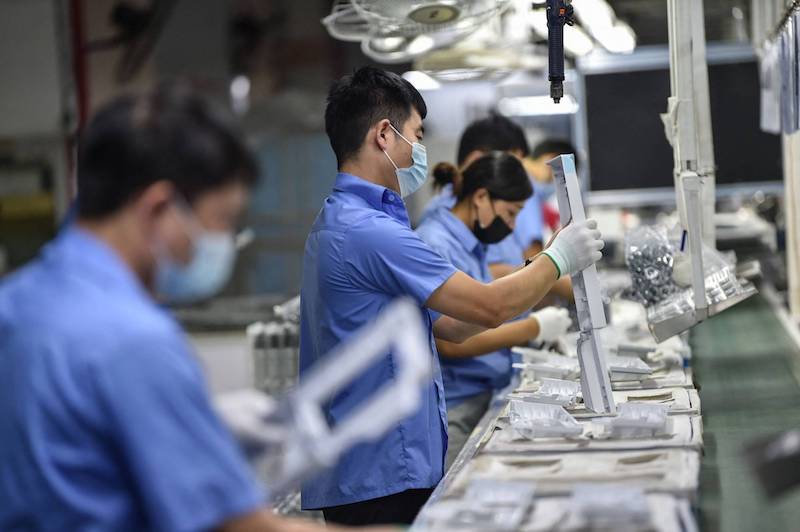Factory activity fell in China in January for the fourth straight month, according to an official factory survey on Wednesday.
The purchasing managers’ index (PMI) rose to 49.2 in January from 49.0 in December, driven by a rise in output but still below the 50-mark that signifies growth over a decline. This was in line with a forecast for the same amount in a Reuters poll.
The data provides the first official snapshot of how the world’s No-2 economy has started off the new year after a shakier-than-expected post-Covid recovery.
It suggests China’s sprawling manufacturing sector and the broader economy are struggling to regain momentum.
ALSO SEE: Will Evergrande Really be Liquidated? Not if China Says No
The latest figure is also affected by the Lunar New Year which will fall on February 10 this year, as factories may shut earlier and send workers back home ahead of the holiday.
“Economic momentum remained muted as the deflationary pressure persists,” said Zhiwei Zhang, chief economist at Pinpoint Asset Management, and expects China’s central bank to cut rates in the first half of the year to boost domestic demand.
Export orders down for 10 straight months
January’s new orders sub-index was at 49.0, contracting for the fourth month, according to the NBS survey. Weak external demand also dragged on manufacturing activity, with the new export orders index registering at 47.2, contracting for the 10th straight month.
To spur growth, China’s central bank governor Pan Gongsheng unexpectedly announced a cut to banks’ reserve requirement ratio at a press conference last week. Authorities face a daunting task as they try to revitalise the economy in the face of a property downturn, local government debt risks, deflationary pressures and weak global demand.
The official non-manufacturing purchasing managers’ index (PMI), which includes services and construction, rose to 50.7 from 50.4 in December, the highest since September last year, according to the NBS.
The sub-index of services PMI returned to growth following two months of contraction, but construction PMI grew at a significantly slower pace.
The composite PMI, which includes manufacturing and services, was at a four-month high of 50.9 in January compared with 50.3 the previous month.
“It is not clear if the latest rise in the PMIs reflects a further improvement in January or simply the easing of sentiment effects that have been weighing on the surveys,” said Julian Evans-Pritchard, head of China economics at Capital Economics.
“Either way, it adds to evidence that growth momentum in China is in the midst of a renewed recovery, albeit one that remains on shaky foundations and is unlikely to be sustained once current policy support is pared back.”
The International Monetary Fund on Tuesday lifted China’s growth forecast this year to 4.6% from 4.2% in October, thanks to the significant fiscal support from the authorities and a less-severe-than-expected slowdown in the property sector.
China won’t release its 2024 growth target till March, but policy insiders expect Beijing to maintain a similar growth target to last year of around 5%.
- Reuters with additional editing by Jim Pollard
ALSO SEE:
China Told Only Major Intervention Can Turn Economy Around
China Looking at Further Moves to Prop up its Slumping Markets
China Warns Officials Against Falsifying Economic Data
Mortgage Delinquencies in China Soared by 43% in 2023
























